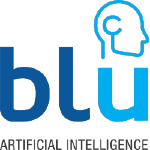
The Future of AI Education: Building Organization-Wide AI Literacy
AI Literacy is No Longer Optional AI is transforming industries, [...]
AI Literacy is No Longer Optional
AI is transforming industries, but most organizations are not equipped with the right knowledge to maximize its potential.
Only 23% of employees feel confident using AI in their work, and over 60% of executives say the AI skills gap is slowing adoption.
Without AI literacy, businesses face:
❌ Low adoption rates—Teams resist AI due to lack of understanding.
❌ Misaligned AI strategies—Executives struggle to integrate AI into business goals.
❌ Compliance & security risks—Employees unknowingly misuse AI tools.
AI isn’t just for technical teams—it must be understood across the entire organization. In this guide, Blu outlines a structured approach to building AI literacy at scale, ensuring employees, executives, and technical teams are ready for AI-driven transformation.
The 3 Levels of AI Literacy Every Organization Needs
1. AI Awareness for Business Leaders & Executives
✅ Key Question: Do decision-makers understand AI’s business impact?
🔍 The Challenge: Many executives lack foundational AI knowledge, making it difficult to:
- Develop AI-aligned business strategies.
- Make data-driven AI investment decisions.
- Communicate AI’s role in digital transformation.
💡 AI Literacy Best Practices for Executives:
- Provide AI strategy & governance training for leadership teams.
- Teach executives how to evaluate AI ROI and risk management.
- Encourage AI-driven decision-making across business units.
🔹 Blu’s Approach: We deliver AI executive training programs, ensuring leadership teams are AI-literate and capable of driving AI adoption.
2. AI Upskilling for Employees & Non-Technical Teams
✅ Key Question: Can employees use AI tools effectively in their daily work?
🔍 The Challenge: Many employees fear AI will replace their jobs, leading to resistance and underutilization of AI tools.
💡 AI Literacy Best Practices for Employees:
- Conduct AI literacy workshops to demystify AI and its benefits.
- Provide hands-on AI training for employees in marketing, HR, finance, and operations.
- Focus on AI as an augmentation tool, not a replacement for human workers.
🔹 Blu’s Approach: We create custom AI learning pathways for different roles, ensuring teams can confidently integrate AI into their workflows.
3. Technical AI Mastery for IT, Data, & AI Teams
✅ Key Question: Does your technical team have the skills to develop, deploy, and scale AI?
🔍 The Challenge: AI is constantly evolving, and IT teams need advanced skills in AI deployment, governance, and model optimization.
💡 AI Literacy Best Practices for Technical Teams:
- Train data teams on AI model development & monitoring.
- Provide AI security & compliance training to IT departments.
- Ensure technical teams are up-to-date with AI governance frameworks.
🔹 Blu’s Approach: We provide advanced AI/ML training programs, helping technical teams manage AI responsibly and at scale.
A Step-By-Step Framework for Building AI Literacy at Scale
🔵 Step 1: Assess Your Organization’s AI Literacy Levels
✔ Conduct an AI skills audit to identify knowledge gaps.
✔ Define AI learning objectives for executives, employees, and technical teams.
🔵 Step 2: Develop Tailored AI Education Programs
✔ Create AI awareness programs for leadership & business teams.
✔ Provide role-based AI training (e.g., AI in finance, AI in HR).
🔵 Step 3: Implement Hands-On AI Learning Initiatives
✔ Use real-world case studies & AI use cases in training.
✔ Encourage employees to experiment with AI-powered tools.
🔵 Step 4: Foster a Culture of Continuous AI Learning
✔ Provide ongoing AI education & certification opportunities.
✔ Encourage cross-functional AI collaboration & learning forums.
🔵 Step 5: Measure AI Literacy & Track Progress
✔ Regularly assess AI literacy through knowledge assessments & surveys.
✔ Adjust AI learning programs based on new trends & business needs.
Final Thoughts: AI Literacy is the Foundation of AI Success
📌 Companies that invest in organization-wide AI education will:
✅ Improve AI adoption rates by reducing resistance.
✅ Ensure AI aligns with business strategy & operations.
✅ Reduce compliance risks by training employees on AI best practices.
At Blu, we help enterprises implement AI training & education programs, ensuring employees, executives, and technical teams are fully AI-literate and ready for AI transformation.
📩 Want to build an AI-ready workforce? Let’s talk.
Share this article
Follow us
A quick overview of the topics covered in this article.
Latest articles
April 29, 2025
April 22, 2025
April 9, 2025



